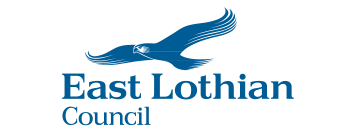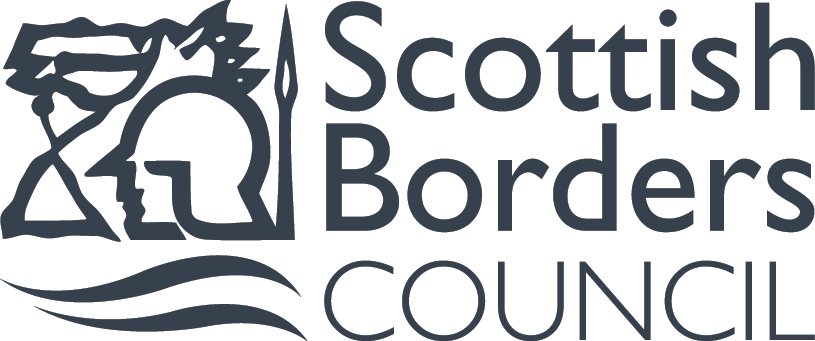How did you get involved with the City Region Deal’s intensive family support work?
I heard about the Train@Ed fellowships and was interested in the opportunity to work in a non-academic setting. After looking into different areas of activity in the City Region Deal, I recognised the intensive family support (IFS) work would be an ideal area to get involved.
I wrote a Train@Ed application based on helping to evaluate the IFS proposals. I have prior experience in network interventions in real-life setting from when I lived in the US, and the City Region Deal IFS project has offered a chance to expand that part of my professional repertoire.
Through this, I’m hoping to build on my previous research in social data use, which is also called ‘network intervention’, within the context of a significant policy intervention. Through colleagues at the University of Edinburgh - who were already involved with the City Region Deal - I contacted the IFS project lead Adam Dunkerley, from Fife Council, and have worked with the team closely since the beginning on the IFS proposal.
How did you become involved in this field of research?
I came to the fellowship from the educational field. I started as a high school teacher, which I did for five years before going back to school to get my PhD in education policy. In my programme at Michigan State University (MSU) I was fortunate enough to learn from and work with a leading social network scholar, Dr Kenneth Frank, who was also one of my doctoral advisors.
Dr Frank introduced me to network intervention concepts through a lot of his own work. I ended up working on some of his network intervention projects, and not all of them were in education. This gave me a lot of practical experience applying network concepts in policy interventions. It also helped me to learn how to do research outside of my specialisation and work with people from outside of academia.
Can you provide an overview of the IFS work?
In social and education policy, policy makers tend to focus on individual attributes and measurements, but the problem with that is a lot of the outcomes we are concerned with are the product of complex social phenomenon.
Relationships with other people, are one example. But how do you measure the impact of a relationship? While analysing social networks, which is a widely used method in social science research, is one way. This project uses social network analysis to better understand the influence of relationships on extreme poverty and deprivation in families.
Social networks, such as family relationships, but also workplace relationships and friend circles, are important predictors of individual behaviour because they are conduits for social capital, which are non-material resources. Positive social interactions with others, for example, provide individuals with a sense of meaning, purpose and dignity and provide a barrier against feelings of isolation and rejection associated with economic deprivation. Yet these kinds of social factors are usually not considered by policymakers or programme evaluators when crafting and assessing social programmes; partly, because there has been no way to capture and track social capital empirically.
In part, the IFS programme is about changing that. We want to show how social capital impacts progression for those citizens facing extreme poverty or deprivation and, therefore, that it is a key ingredient for understanding the effectiveness of social policy interventions.
The IFS project is due to start in April 2020, and I’ve been working closely with the lead delivery agency, Capital City Partnership, on how to integrate social network data use. Social network data use has been written into the specifications of the IFS business case.
I’m also working with colleagues at Capital City Partnership and organisations who’ll be delivering the IFS services, helping develop implementation guidelines and training activities. In the longer-term, we are hoping to get funding to develop software for social network data use.
We’re trying to assess the existing IFS measures across the six local authority areas within the City Region Deal, and how we can help to build on that. There will be a period of data collection of about one year before moving on to an initial evaluation of social effects within the IFS programme. We also want to train the relevant service delivery teams in collecting and making use of that data.
What will be the main outcomes?
As far as research goes, the main outcome will be an analysis on the effects of social capital on IFS intervention outcomes. For policymakers, this will provide evidence to support the use of social network analysis to understand the effects of the IFS programme. And I also plan to publish in academic circles as well.
There are practical outcomes are probable but more important and interesting. Mainly that means developing network intervention tools to support service delivery. And that is both at the organisational level and the service delivery level. At the organisational level, we are developing network visualisation techniques to help partners understand how community assets and professional interactions support the IFS programme implementation. Then we want to be able to help IFS use that data to build more supportive and effective networks.
At the practice level, I hope that innovation in practice will be one of the outcomes of increased use of social network data. Social network analysis offers a great model for the study of the diffusion of innovation; how does innovation travel through organisations, why do some people adopt innovation and others not? I want to capture the fact that social workers will be innovating and problem-solving – perhaps not in the traditional technological sense. But innovation can take place in a very practical way in ordinary workplace environments, addressing real-world problems. It’s important to understand small innovations in practice that make a big difference can exist at a micro and localised level – but they can be genius.
This has been a great learning experience for me to find out more about the front-end delivery of social services. Because my previous research has been based on the study of policy interventions, the IFS work has helped me realise the importance of consulting with those at the front-end of delivering services.
Have you ever worked on research for projects within the region where you live before?
This feels like a natural progression for me personally and connects two important areas of my life; my community work for the area I live in and my professional life.
How would you like to develop the work in future?
Further down the road, we want to apply for grant money to scale up our work. If successful in achieving funding for software development, this could be used by social care workers and others. I’m also aiming to develop a series of professional development modules in social network data use. At the end of the process, we hope to have new capabilities to collect this type of data and build a database on social networks. The goal is to have funding secured and modules launched within a year or two of the IFS formally starting.












